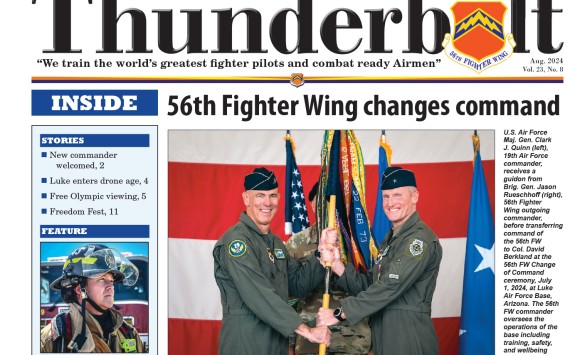As experienced supervisors and leaders, are we empowering our junior leaders to spread their wings as supervisors and leaders at their level? Specifically, I’m referring to the day-to-day leadership roles within the work area.
I can remember as a young staff sergeant, my team relied on me to motivate them, teach them and correct them. My senior leaders relied on me to fill them in on issues I was having with my team. I felt empowered because my boss told me to handle my business, and I sought my leaders’ guidance freely as I knew they were in my corner.
How many times have we just taken control of the situation and handled it, never involving the immediate supervisor? How many times have we sat down with our supervisors and explained the importance of their involvement and accountability for those they supervise? It’s important for them to be accountable for their own actions and to have the courage to hold their subordinates accountable.
How many times have we explained to our junior leaders the importance of getting to know their Airmen? I’ve seen so many cases where everyone in the leadership chain knows what the member is going through except the supervisor. Now, if the supervisor is disengaged, we as experienced leaders need to inspire them to get engaged as a leader and supervisor. We may need to intentionally work out a plan of action for them. However, if we’ve stunted their involvement by our over involvement, we are doing our junior leaders an injustice?
I’m not saying that all levels of leadership shouldn’t be involved, but what I am saying is that we must ensure we do not leave out the first line of defense, the immediate supervisor. Be it a senior airman or staff sergeant, they should be included in the decisions we make regarding their Airmen.
As a first sergeant, I deal with leadership at all levels. I’m a firm believer in informal and formal leadership. Sometimes the informal leader has more impact than the formal leader.
I recently had an issue that involved a junior leader who was very much engaged with her Airmen. I was impressed that she knew his story, she knew his struggles and she cared, but most importantly her leadership empowered her to lead him.
It’s extremely hard to influence and impact others if your voice is never heard and your opinion is never sought. So as a gentle reminder, let’s keep our first line of defense involved in our decision making. It will pay dividends as these young leaders can look their Airmen in the eye and know when something is wrong or when they need help, and that makes a world of difference.











